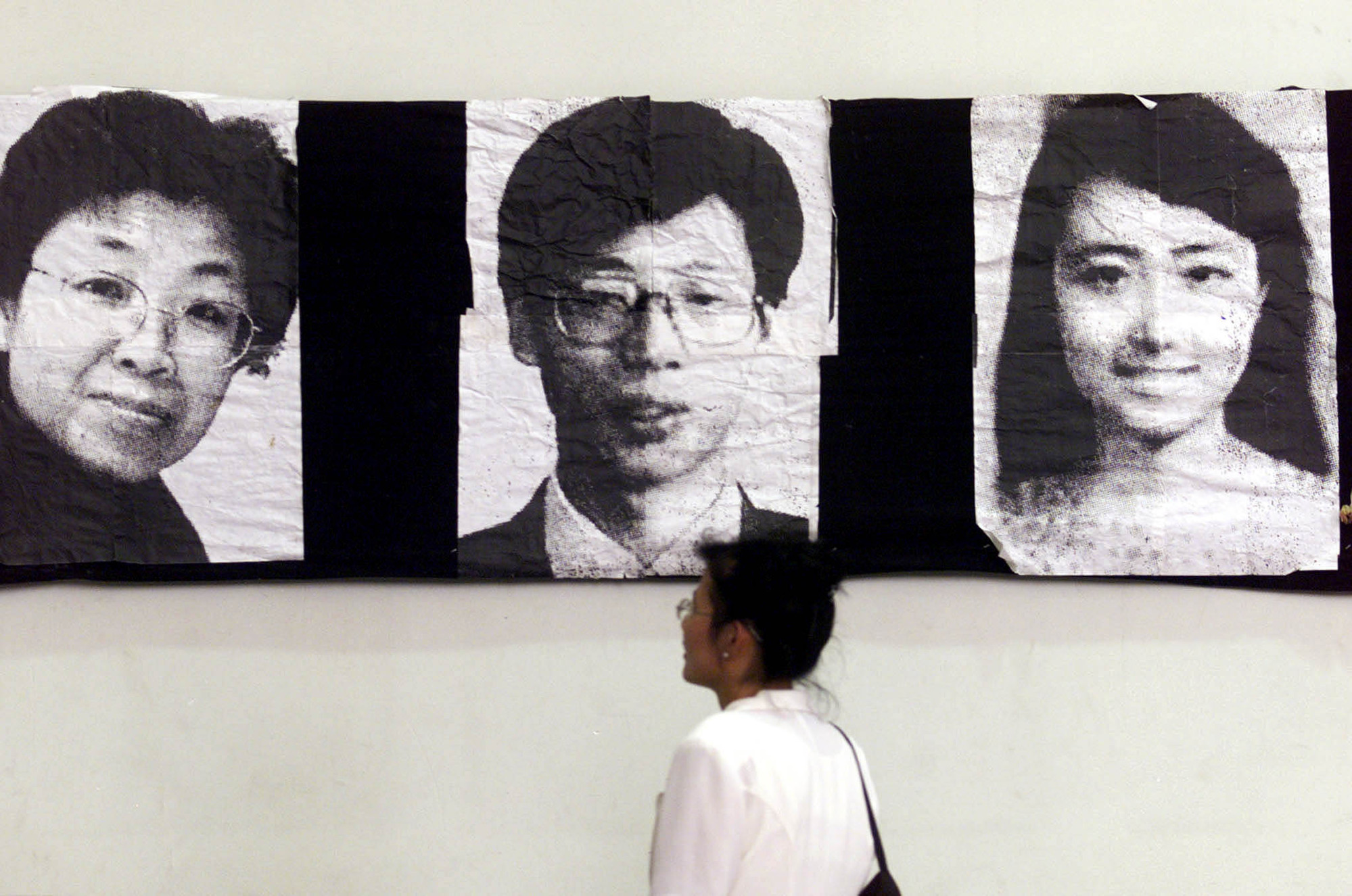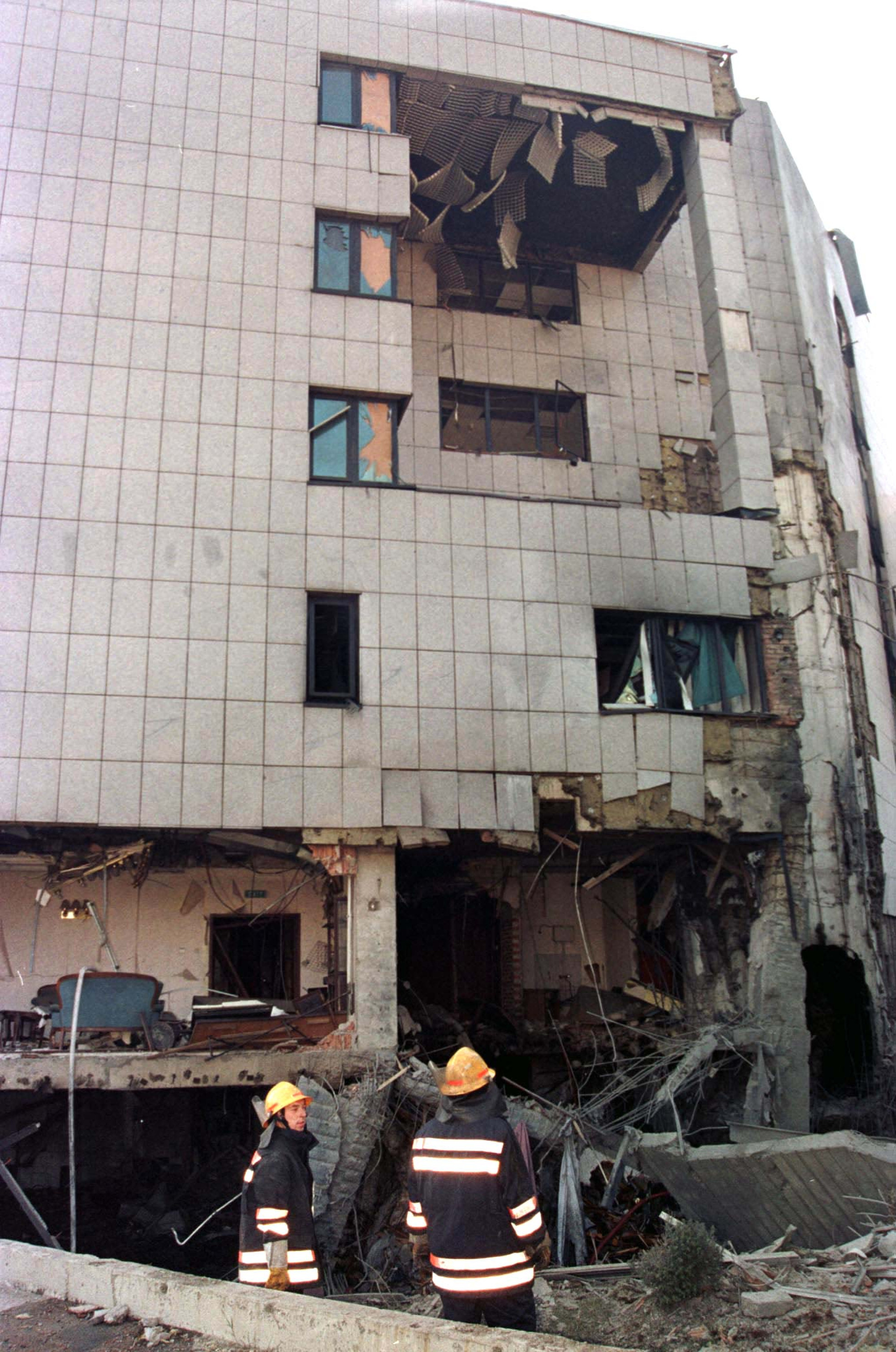China sends ‘message to Nato’ with Xi’s visit to
Belgrade embassy bombing site
- The Chinese leader’s attendance at 25th anniversary commemoration is a ‘subtle signal’ to the US and its Western allies, observers said
- Beijing has repeatedly invoked the embassy’s destruction to attack Washington and the security alliance for trying to contain China’s rise
Three Chinese journalists were killed in the strike, part of Nato’s military campaign in the former Yugoslavia, setting off a diplomatic crisis between Beijing and Washington as well as the biggest anti-US protests across China in decades.
The US and its Nato allies insisted the “entirely unintended” strike had meant to target a Yugoslav military facility and the embassy had been misidentified in a “tragic mistake”, but many in China – including government officials – remain unconvinced.
Is it possible to make such a colosally stupid mistake? As FDR once stated, "every political event was planned by somebody".
During a state visit to Serbia in 2016, Xi visited the location which featured a commemorative plaque, unveiled on the 10th anniversary of the bombing by the mayor of Belgrade and the Chinese ambassador.
Zhiqun Zhu, a professor of international relations and director of the China Institute at Bucknell University in Pennsylvania, said Xi’s latest visit is highly symbolic and serves two purposes.
The first is intended “primarily for domestic audiences as it helps to boost nationalism at home. The official narrative is that this happened when China was weaker, and now the Chinese should be proud of themselves as the country has become a world power”.
Zhu said the high-profile move to mark the embassy bombing also served as a reminder to Nato of this “historical debt to China”. “And it is a subtle warning that a guilty Nato should not get involved in Chinese affairs, nor should it expand to Asia.”
Beijing has repeatedly invoked the embassy strike in recent years to attack Washington and Nato over their alleged efforts to contain China, as part of the intensifying wrangling with the US and its Western allies.
At a Security Council meeting in March, the Chinese deputy envoy to the United Nations Geng Shuang called the bombing “a flagrant violation of China’s sovereignty” and said Beijing “will never accept such a historical tragedy repeating itself”.
Last month, Geng invoked the incident again, during a speech condemning Israel’s attack on Iran’s embassy in Syria.
Zhu said that in contrast, the US and other Nato countries are reluctant to talk about the incident and want to downplay it because “they can never convince the Chinese to accept the ‘old map’ explanation” for how the strike occurred.
“If the incident happened today, there would be a major crisis in China-US relations, given the intense rivalry between the two powers, hostility towards China in the US, and strong nationalism in China now,” he said.
China’s reaction in 1999 was relatively restrained, in light of the magnitude of public feeling aroused by the bombing, with mass protests in Beijing, Shanghai, Chengdu, Guangzhou, Nanjing and Shenyang.
In Beijing, protesters laid siege to the US embassy, trapping everyone inside for days until they were called off by the authorities.
China denounced the Belgrade strike as a “barbaric act” and a “severe infringement” on Chinese sovereignty, while then president Jiang Zemin refused to take calls from his US counterpart Bill Clinton for a week, despite the hotline set up in 1997.
Pang Zhongying, a professor of international affairs at Sichuan University, said the 25th anniversary was an opportunity to reflect on the lessons learned from 1999, when US-China ties bore some important resemblances to those of today.
“Bilateral ties stood at a historical crossroads and were very fragile, which is somewhat similar to relations at the moment”. The bombing – “a big surprise” – threatened to derail the relationship, on the mend since the 1996 Taiwan Strait crisis, he said.
At the time, Beijing and Washington were engaged in serious negotiations towards finalising US support for China’s accession to the WTO and the previous months had seen reciprocal state visits by Jiang and Clinton.
Just weeks before the bombing – which Clinton later described as one of the worst setbacks of his presidency – then Chinese premier Zhu Rongji had wrapped up a visit to the US.
“It’s no exaggeration to say that the country’s future development was at stake, because an escalation of the diplomatic crisis would not only sabotage ties with the US, it could also jeopardise domestic reforms, as well as China’s WTO accession amid doubts at home about reform and opening up,” Pang said.
“While the incident should be remembered, it should not be commemorated in a high-profile manner, especially when Sino-US relations are still very fragile. It can hardly do any good to the improvement of bilateral ties.”
When Jiang and Clinton finally spoke on May 14, 1999, the US president expressed his regrets and promised an investigation, as well as reaffirming his commitment to normalising relations with China.
While Beijing wanted to show its resolve for a serious political struggle with Washington, it was also concerned about the ramifications – especially on domestic stability in the wake of the protests around the country.
At an internal meeting of the Chinese leadership after the bombing, Jiang set the tone by reportedly saying “we must not only oppose hegemonism, but also develop relations with the US”.
“China will not deviate from its policy of economic development and reform and opening up because of this incident,” he said.
In the months that followed, the talks suspended by Beijing on May 10 resumed, covering the WTO, human rights and military ties. In December, the two sides agreed on compensation, for damage to the Chinese embassy and to US diplomatic missions in China.
Sourabh Gupta, a senior policy specialist with the Institute for China-America Studies in Washington, said Beijing wanted to send a signal with Xi’s Belgrade visit, that “China might or might not forgive but it will never forget what happened on that fateful day in 1999”.
“That the embassy bombing happened during a military operation, and war, that was neither sanctioned by the UN Security Council nor by the US Congress … [making] the bombing all the more odious, I think Xi’s presence in Belgrade is a fitting remembrance on the 25th anniversary of that incident,” he said.
“The relative restraint stemmed, in my view, from the fact that the Chinese leadership sadly and reluctantly understood that in high likelihood the bombing had been a tragic error – even though it may have been during an illegal war.”
According to Gupta, a key lesson from the embassy bombing was the need for an operational mechanism to ensure open lines of communication in the event of emergencies.
“The two sides need qualitatively better civilian-led crisis communication and management channels to reckon with the day-after essentiality of engaging the other side to talk down and defuse a crisis – particularly an inadvertent and unintended one like the embassy bombing,” he said.





